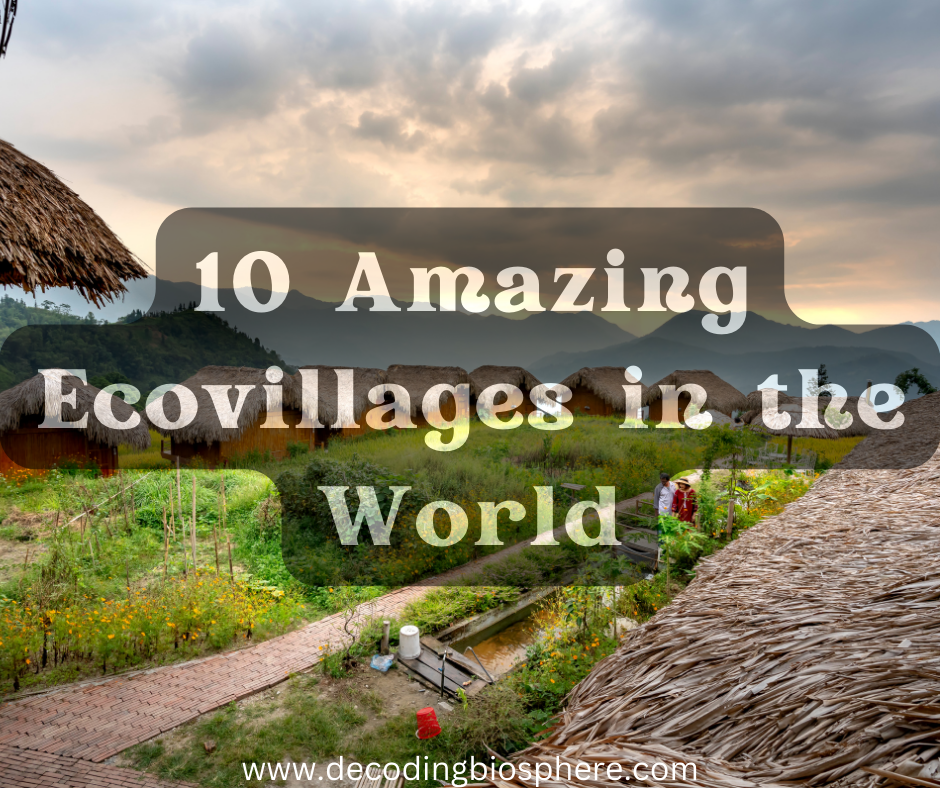In the quest for a sustainable future, ecovillages are emerging as beacons of eco-friendly living, demonstrating that harmonious coexistence with nature is not just a dream but a tangible reality. Let’s explore 10 remarkable ecovillages that showcase the way to sustainable living in simple terms.
What is an Ecovillage?
An ecovillage is a community focused on sustainability and being environmentally friendly. These communities aim to live in a way that has little impact on the environment and builds strong social, economic, and ecological strength. Ecovillages often use eco-friendly practices like organic farming, renewable energy, green building, waste reduction, and emphasize community cooperation. The design and ethos of ecovillages prioritize living in harmony with nature, promoting sustainable development, and building a strong sense of connection among community members.
Importance of Ecovillages:
- Sustainable Living Model:
- Ecovillages serve as living models of sustainable practices, demonstrating how individuals and communities can reduce their ecological footprint. By implementing eco-friendly technologies and lifestyles, ecovillages showcase a tangible and replicable approach to sustainable living.
- Community Collaboration:
- Ecovillages place a strong emphasis on community collaboration and cooperative living. Residents work together to create a shared vision of sustainability, encouraging mutual support and fostering a sense of belonging. This community-centric approach challenges the individualistic nature of modern living.
- Environmental Education:
- These intentional communities often serve as educational hubs, providing practical examples of sustainable living for residents and visitors alike. The immersive experience of an ecovillage can inspire a deeper understanding of the importance of ecological stewardship and sustainable practices.
- Biodiversity Conservation:
- Many ecovillages incorporate ecological design principles that prioritize biodiversity conservation. This includes practices such as organic farming, reforestation, and the preservation of natural habitats within the community. These efforts contribute to the protection of local ecosystems and wildlife.
- Renewable Energy Adoption:
- By embracing renewable energy sources like solar and wind power, ecovillages reduce reliance on non-renewable energy and contribute to a more sustainable energy future. These communities often experiment with innovative energy solutions that can be scaled for broader adoption.
- Alternative Economic Models:
- Some ecovillages explore alternative economic models that prioritize local and sustainable practices. This can include community-supported agriculture, barter systems, and local currencies, challenging the conventional consumer-driven economic paradigm.
- Cultural Exchange and Diversity:
- Many ecovillages are multicultural and international, fostering a rich tapestry of cultural exchange. This diversity not only enhances the communal experience but also promotes the exchange of ideas and practices, contributing to the global dialogue on sustainable living.
- Climate Change Mitigation:
- Through sustainable practices and a reduced carbon footprint, ecovillages actively contribute to climate change mitigation. By implementing energy-efficient technologies, reducing waste, and promoting sustainable transportation, these communities demonstrate practical solutions for addressing climate challenges.
Examples of Eco-villages
1. Findhorn Ecovillage, Scotland:
Nestled on the Scottish coast, Findhorn Ecovillage began in the 1960s as a spiritual community. Over the years, it has evolved into a global model for sustainable living. Findhorn emphasizes eco-friendly architecture, permaculture, and renewable energy sources. The community grows its own organic food and operates with a commitment to environmental education, showcasing how a holistic approach to sustainable living can flourish in the rugged beauty of the Scottish Highlands.
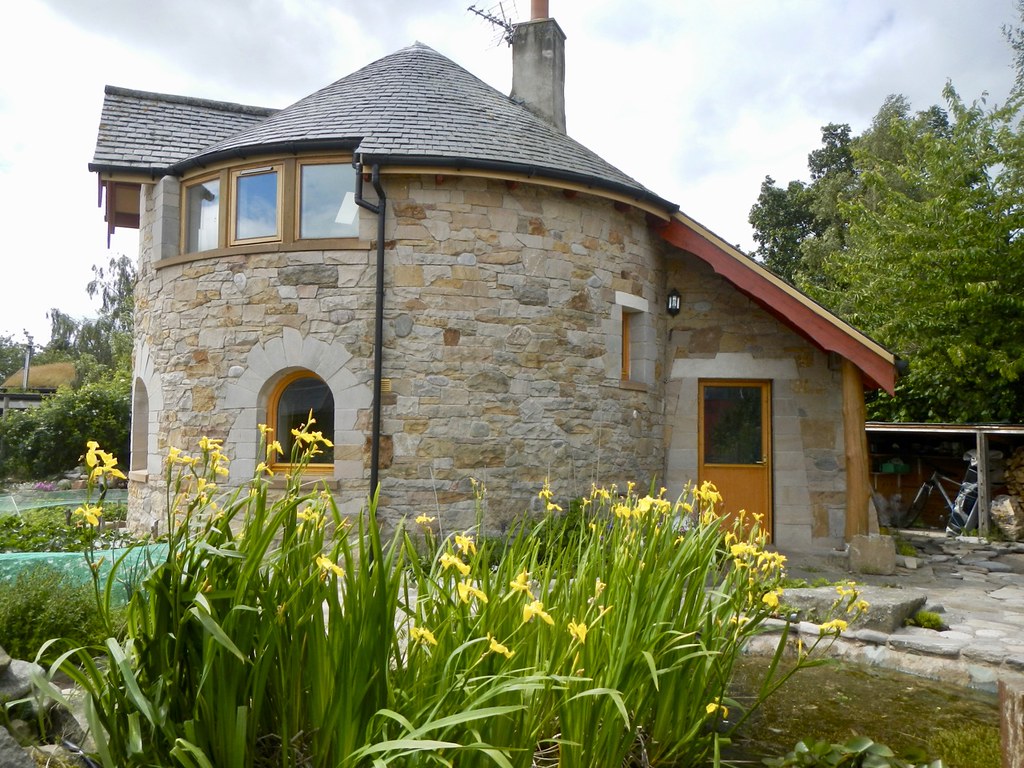
2. Auroville, India:
Founded in 1968 in Tamil Nadu, India, Auroville is an experimental township promoting sustainable and spiritually conscious living. With residents from diverse cultural backgrounds, Auroville focuses on renewable energy, organic farming, and eco-friendly technologies. The Matrimandir, a stunning golden globe at the heart of Auroville, symbolizes human unity and serves as a meditation center. Auroville embodies the idea that sustainable living can thrive when people of different cultures come together for a common ecological vision.

3. Damanhur, Italy:
Hidden in the Piedmont region of Italy, Damanhur is renowned for its underground temples and commitment to sustainable practices. Established in the late 20th century, Damanhur incorporates eco-friendly technologies, organic farming, and artistic endeavors into its daily life. The community showcases how sustainability and artistic expression can coexist harmoniously, creating an inspiring environment beneath the surface of the Italian landscape.
4. Crystal Waters, Australia:
Established in the 1980s in Queensland, Australia, Crystal Waters is a pioneering ecovillage embracing the principles of permaculture. With a focus on sustainable housing, organic farming, and community living, Crystal Waters offers an inspiring model for eco-friendly development. The village’s commitment to preserving natural ecosystems and fostering a strong sense of community highlights the transformative power of sustainable living.
5. EcoVillage at Ithaca, USA:
Nestled in New York, the EcoVillage at Ithaca serves as a model for sustainable living in North America. Founded in the 1990s, it features energy-efficient homes, organic agriculture, and a commitment to reducing ecological footprints. The community emphasizes cooperative living and sustainable practices, demonstrating how individuals can come together to create a more environmentally conscious way of life.
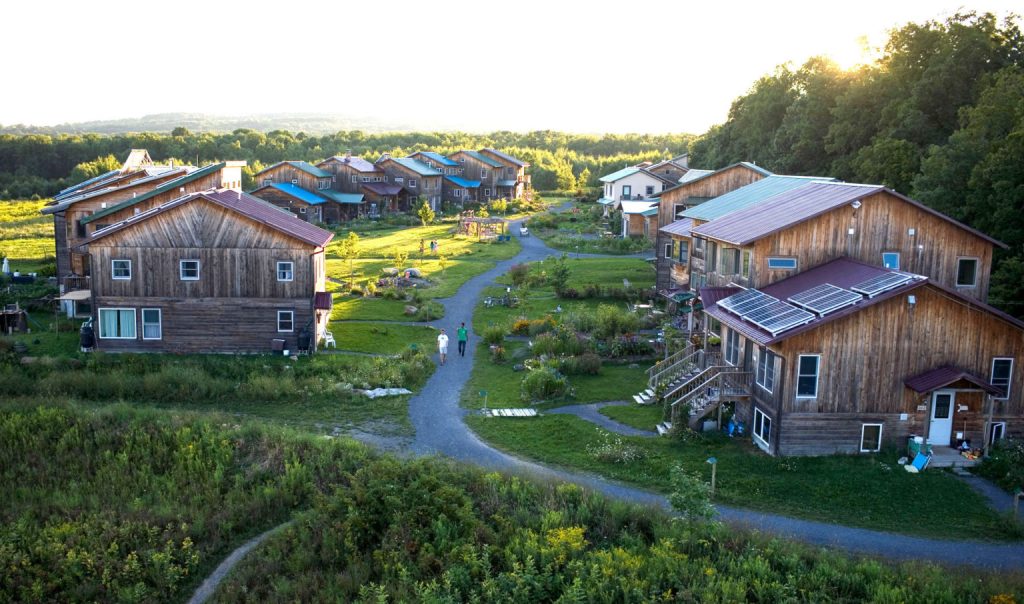
6. Tamera, Portugal:
Located in the Alentejo region of Portugal, Tamera focuses on creating a regenerative culture that values sustainability and peace. With permaculture practices, sustainable water management systems, and a commitment to holistic living, Tamera stands as a sanctuary for both humans and nature. The community’s dedication to healing the Earth and fostering a deeper connection to the environment exemplifies the transformative potential of sustainable living.
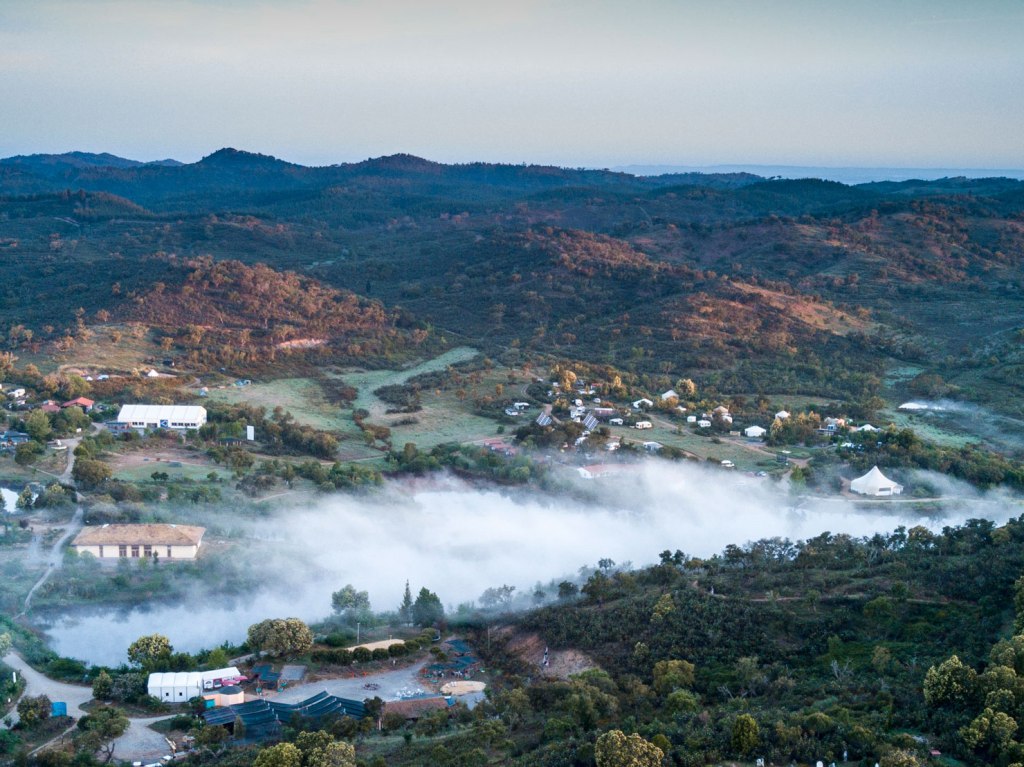
7. Sieben Linden, Germany:
Situated in the heart of Germany, Sieben Linden is an ecovillage that embraces ecological building, renewable energy, and cooperative living. Founded in the 1990s, Sieben Linden emphasizes self-sufficiency and sustainability. The village showcases innovative eco-friendly technologies and a strong sense of community, illustrating how sustainable living can be integrated seamlessly into the fabric of daily life.

8. La Cité Écologique, Canada:
La Cité Écologique, located in Quebec, Canada, is a vast ecovillage that emerged in the late 20th century. The community is dedicated to sustainable agriculture, renewable energy systems, and eco-friendly housing. With a focus on holistic living, La Cité Écologique serves as a testament to the possibilities of creating a thriving, sustainable community that balances ecological responsibility with modern living.
9. Earthaven Ecovillage, USA:
Nestled in the Appalachian Mountains of North Carolina, Earthaven Ecovillage showcases permaculture, natural building techniques, and renewable energy systems. Founded in the 1990s, the community emphasizes resilience and sustainable living practices. Earthaven serves as a model for off-grid living, illustrating how intentional communities can thrive while maintaining a deep connection to the natural world.
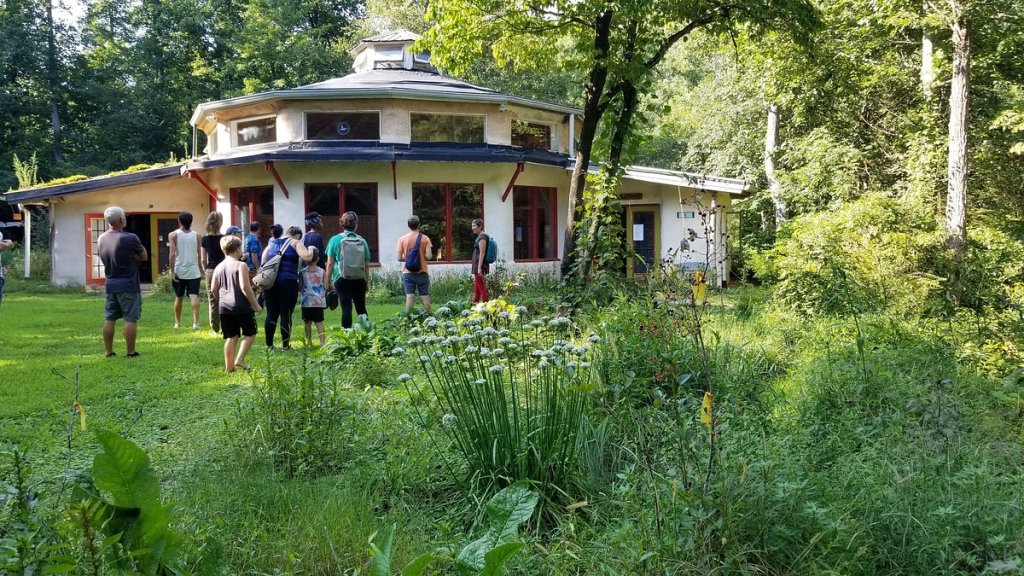
10. Sekem, Egypt:
In the heart of the Egyptian desert, Sekem has transformed arid land into a flourishing oasis through sustainable agriculture. Established in the late 20th century, Sekem showcases how eco-friendly practices, such as organic farming and holistic land management, can turn challenging environments into vibrant, regenerative spaces. The community’s commitment to sustainable development in the face of harsh conditions serves as an inspirational example for similar regions worldwide.

These ecovillages stand as living examples of how sustainable living is not only achievable but also transformative. Through their diverse approaches to eco-friendly architecture, renewable energy, and community engagement, they inspire individuals and societies to embrace a more harmonious relationship with the environment.
You May Also Like
